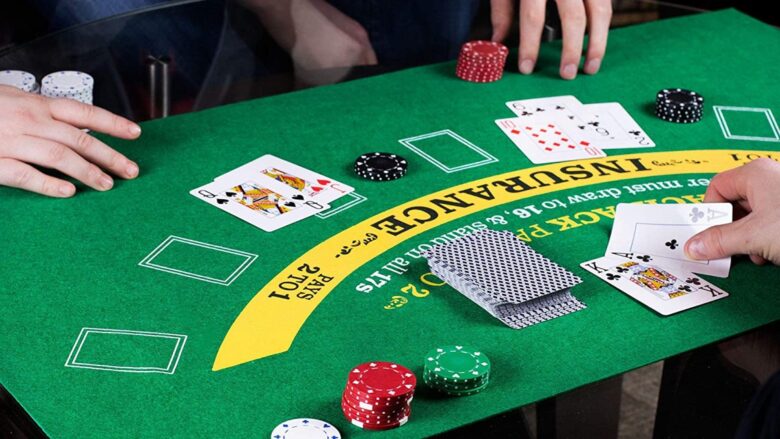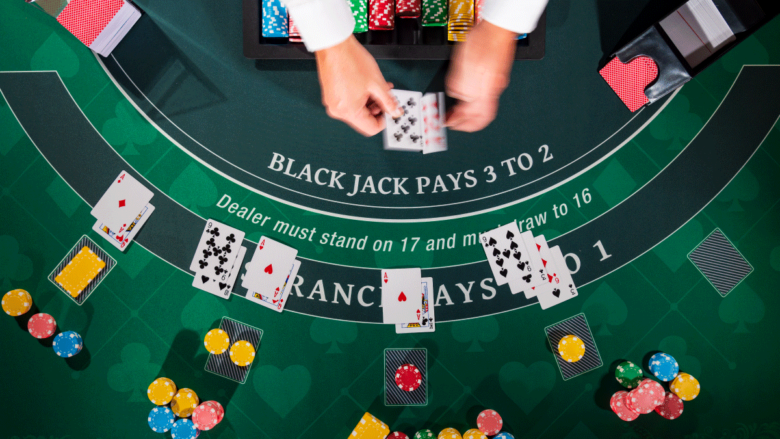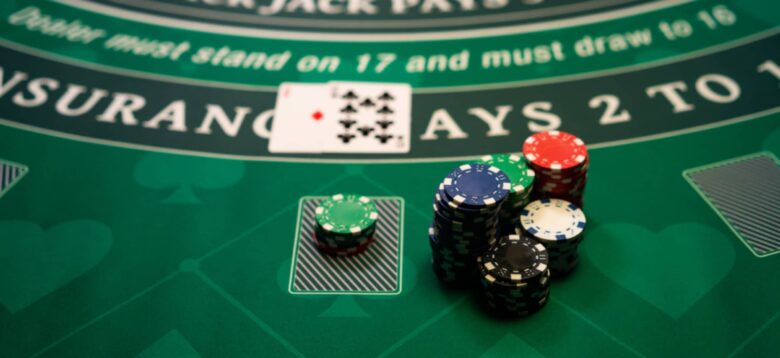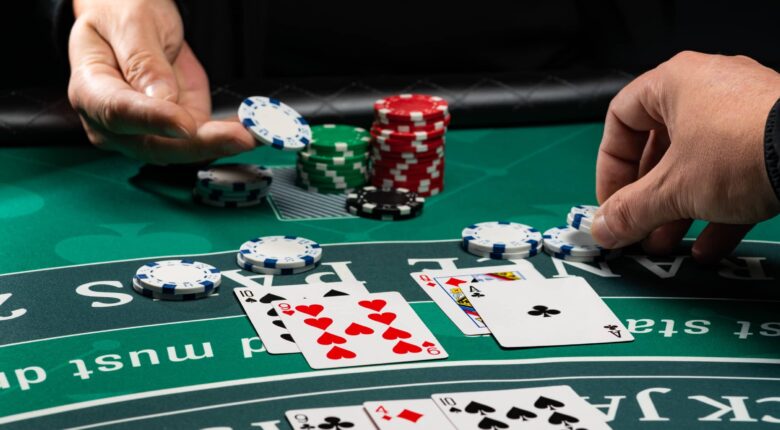Did you know that you may play more than one hand of blackjack at the same time at most casinos no matter if you gamble at a land-based casino hall in Las Vegas, on a desktop website, or in the best online mobile casino?
Of course, this is not feasible if a table is already full. However, most casinos’ blackjack tables aren’t completely occupied, which gives absolute freedom of choice to gamblers. What is more, you’re also not limited to just two hands. You may even play three hands at once if necessary.
Contents
So What to Choose?

Source: wargamer.com
But is this a good idea or a bad idea? Consider what playing many hands does to your average win or loss rate. If you are just starting your gambling journey and stick to the basic blackjack tactics, playing multiple hands at once implies you’ll lose more money faster. However, if you have plenty of experience, playing multiple hands at once will result in a greater hourly win rate.
If you’re considering playing two hands at once instead of simply one, you should objectively assess your blackjack skills. You should not do anything if you believe it will just change your luck. The number of hands you play has little effect on your luck since, after all, luck is merely a standard deviation. The house edge remains the same regardless of how many hands you play.
What’s Special About Playing Two Hands?

Source: mpl.live
While playing two or more hands simultaneously is not frequent, it is something that all gamblers are aware of. If you spend more than a few hours at a blackjack table, you’re bound to witness at least one person who plays at least two hands simultaneously, which would seem to imply that they’re on to something that the majority of the other players aren’t. However, this is not always the case. The benefits and drawbacks of playing two hands generally balance each other out, so it’s primarily a question of personal opinion.
Benefits of Playing Two Blackjack Hands
The biggest benefit of playing multiple blackjack hands is that it increases the amount of action throughout a gaming session. If you deal 90 hands each hour to each of the five players, you may play 180 hands per hour if one of them leaves and you play two positions. This advantage is compensated by the fact that most casinos require a player to bet at least twice the table minimum on each of the several hands he plays, which means you’ll have more chances to win or lose a larger sum.
Another advantage of playing multiple blackjack hands is that it helps equal out your bankroll’s increase and fall. In certain situations, both hands will win or lose at the same time. But it often happens that one hand will win while the other loses, resulting in a net gain (or loss) of zero. The inverse of this assumption is that an equal flow reduces the likelihood of obtaining huge amounts. The bad thing is that it reduces the potential of losing huge money.

Overall, whether this aspect is advantageous or disadvantageous depends on whether you anticipate winning or losing, which is the same as if you were playing a single hand. When reading clumps, counting cards, or tracking shuffles, playing many hands provides a distinct advantage. When a clump reader or shuffle tracker expects the high cards (a clump of tens or an ace that precedes a key card) to come out, switching to numerous hands increases their odds of “capturing” them. A card counter, on the other hand, will play numerous hands in a low-count deck to drag out the low cards and balance one’s losses, then switch to a single hand (with a big stake) when the count swings in one’s favor.
The benefit of moving between single and numerous hands, on the other hand, can be difficult to benefit from frequently as the pit boss will most probably notice this pattern of behavior. Time making a statement about disrupting the dealer’s “winning flow” may assist to mask your genuine intentions; it won’t be long before they find out what you’re up to and “suggest” you play a different game for a while.
When to Opt for Multiple Blackjack Hands?

Source: bitcasino.io
So if you choose to play multiple blackjack hands, there are a few more rules to follow:
- You should only play many hands if you can gamble at a reasonable speed. Other players will be irritated if you spend too much time debating about each of two (or more) hands;
- You should only play several hands only on nearby spots. Reaching over another gambler or jumping around behind the table distracts and will not be allowed for long;
- It is not a good idea to request that other players exchange seats so that you may play in neighboring areas. Though the seating arrangements have no influence on the game’s outcome, it may become uncomfortable if a player performs poorly in one’s “new” place, especially if you are winning in the “old” one;
- If another player wants to join the game and there isn’t another open seat at the table, you should be prepared to give up an extra hand(s) to make room.
Of course, it is not the case in an online casino. But you should keep all these points in mind if you decide to play at a land-based gambling establishment.
Reducing Game Volatility
The fact is that blackjack is a losing proposition for the majority of players. And there is little that you can do about it. However, if you want to decrease game volatility, to lose less while spending the same money at the table — drinking those drinks and chatting – playing two boxes for a lesser wager is the way to go. Of course, one thing is critical to remember: whether you play one, two, three, or more hands of blackjack, nothing will improve your luck. The first step for every gambler is to abandon any superstition or assumption that playing a specific amount of hands is lucky.
